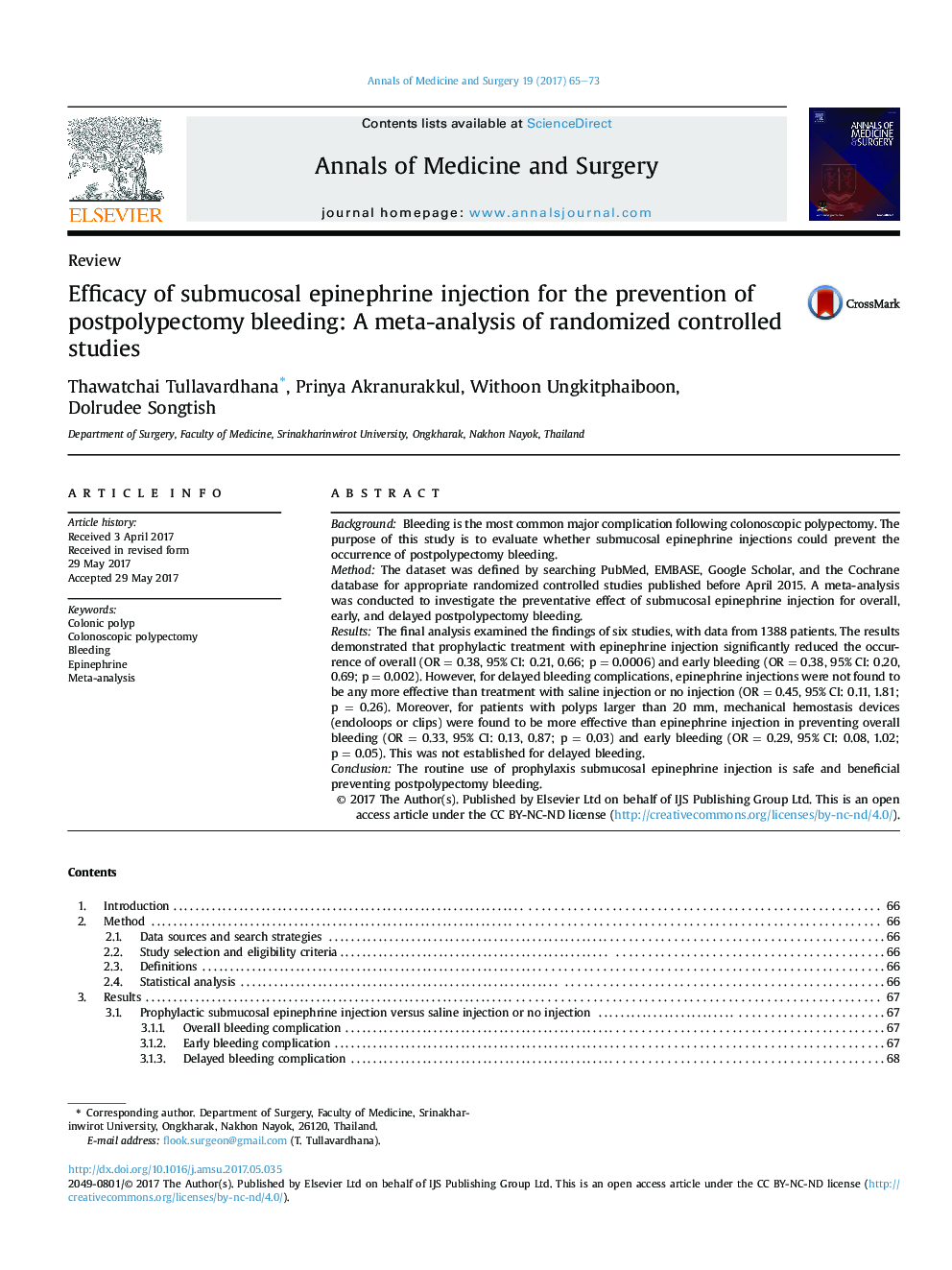| Article ID | Journal | Published Year | Pages | File Type |
|---|---|---|---|---|
| 5722911 | Annals of Medicine and Surgery | 2017 | 9 Pages |
BackgroundBleeding is the most common major complication following colonoscopic polypectomy. The purpose of this study is to evaluate whether submucosal epinephrine injections could prevent the occurrence of postpolypectomy bleeding.MethodThe dataset was defined by searching PubMed, EMBASE, Google Scholar, and the Cochrane database for appropriate randomized controlled studies published before April 2015. A meta-analysis was conducted to investigate the preventative effect of submucosal epinephrine injection for overall, early, and delayed postpolypectomy bleeding.ResultsThe final analysis examined the findings of six studies, with data from 1388 patients. The results demonstrated that prophylactic treatment with epinephrine injection significantly reduced the occurrence of overall (OR = 0.38, 95% CI: 0.21, 0.66; p = 0.0006) and early bleeding (OR = 0.38, 95% CI: 0.20, 0.69; p = 0.002). However, for delayed bleeding complications, epinephrine injections were not found to be any more effective than treatment with saline injection or no injection (OR = 0.45, 95% CI: 0.11, 1.81; p = 0.26). Moreover, for patients with polyps larger than 20 mm, mechanical hemostasis devices (endoloops or clips) were found to be more effective than epinephrine injection in preventing overall bleeding (OR = 0.33, 95% CI: 0.13, 0.87; p = 0.03) and early bleeding (OR = 0.29, 95% CI: 0.08, 1.02; p = 0.05). This was not established for delayed bleeding.ConclusionThe routine use of prophylaxis submucosal epinephrine injection is safe and beneficial preventing postpolypectomy bleeding.
